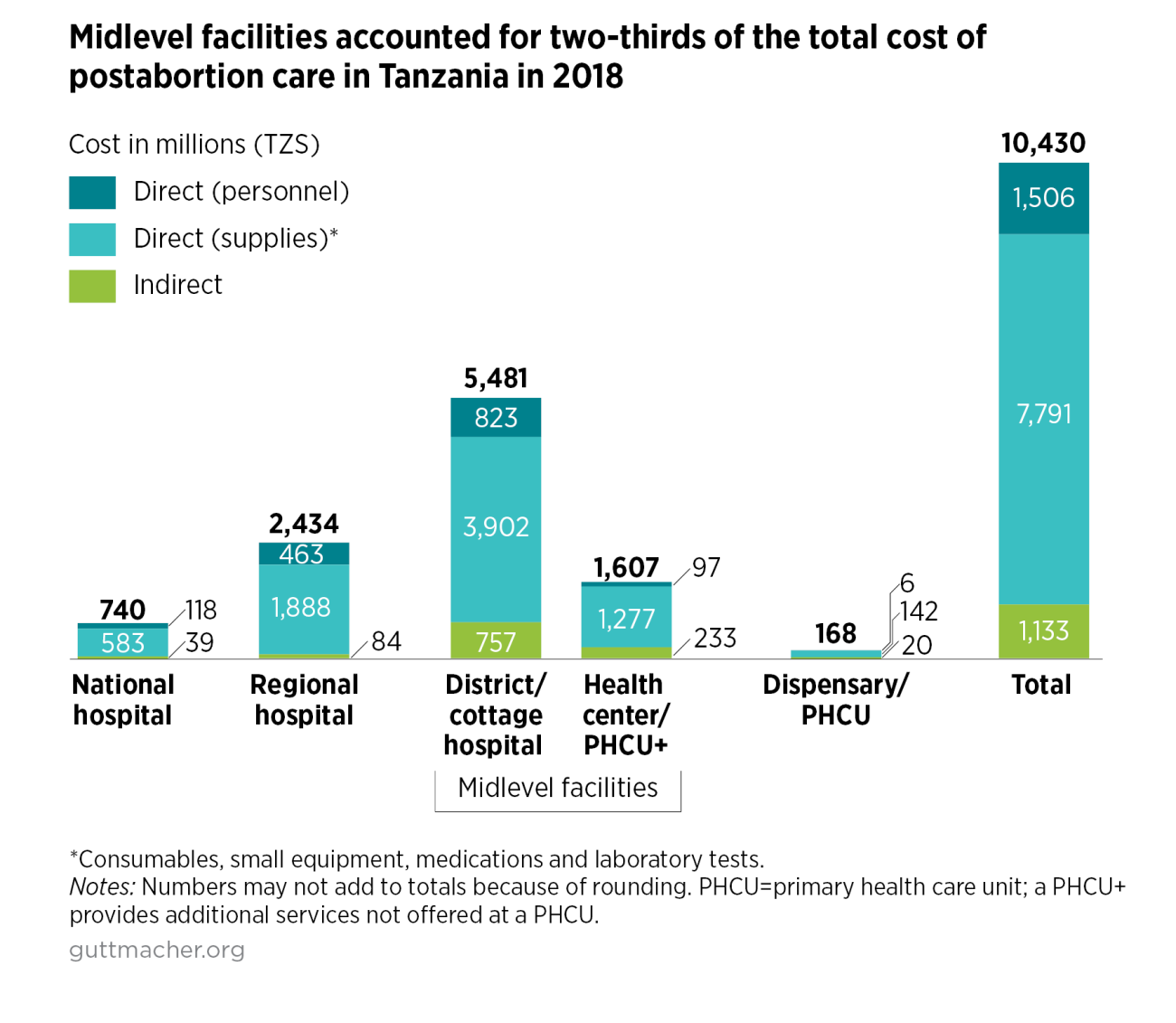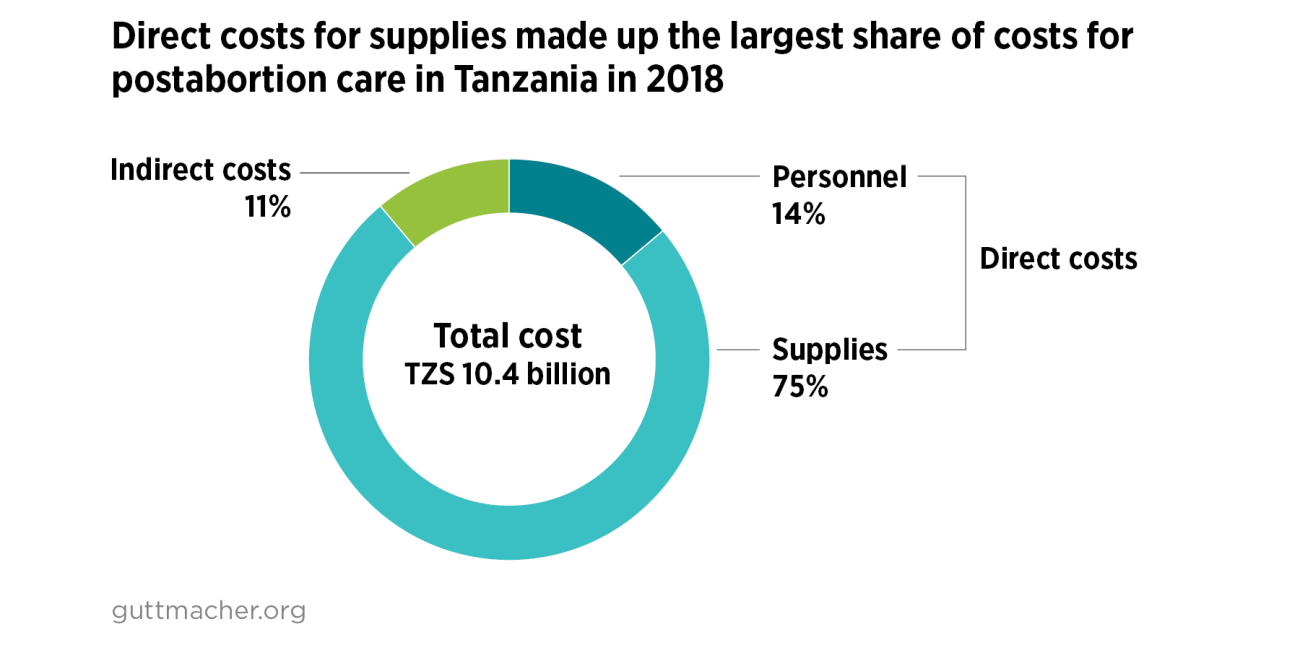Abortion is legally restricted in Tanzania. The penal code is interpreted to allow abortion to save the pregnant woman’s life. However, access to safe abortion services in Tanzania—even for legally authorized reasons—is extremely limited. As a result, unsafe abortion and the need for postabortion care are not uncommon. The Tanzanian government is committed to improving people’s access to lifesaving postabortion care, as a means of reducing maternal mortality, and has made efforts to expand these services at different facilities across the country. This fact sheet presents selected findings from a study estimating the costs to the Tanzanian health care system of providing care to women experiencing complications from unsafe abortion. It also calls attention to patients’ out-of-pocket spending, an important component in the debate about the affordability of postabortion care.
Need for and cost of postabortion care
- In 2018, an estimated 77,800 Tanzanian women received postabortion care, and public facilities provided 64% of this care. Another 114,300 women are believed to have required postabortion care but did not receive it.
- The total national cost associated with postabortion care in 2018 was estimated to be 10.4 billion Tanzanian shillings (TZS; about US$4.5 million). The majority of the total costs nationally in 2018 were incurred at midlevel facilities.



